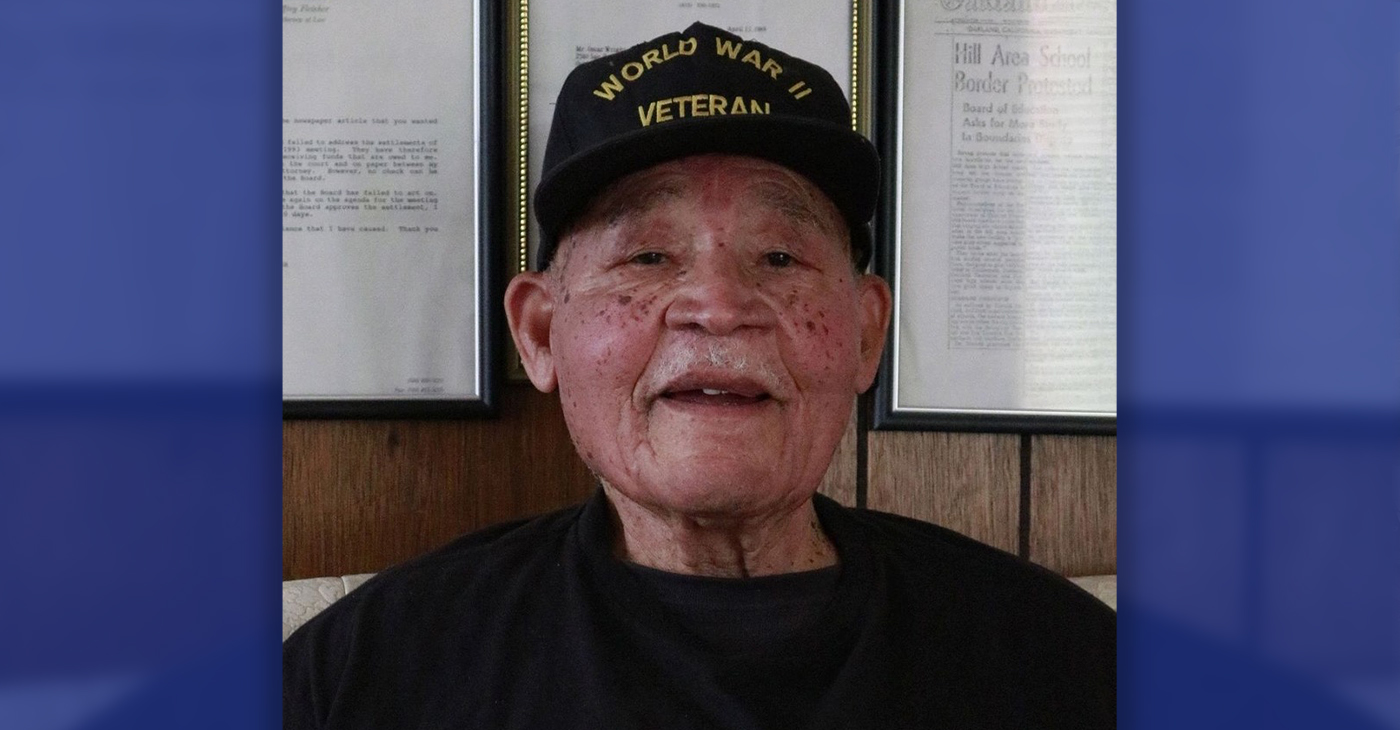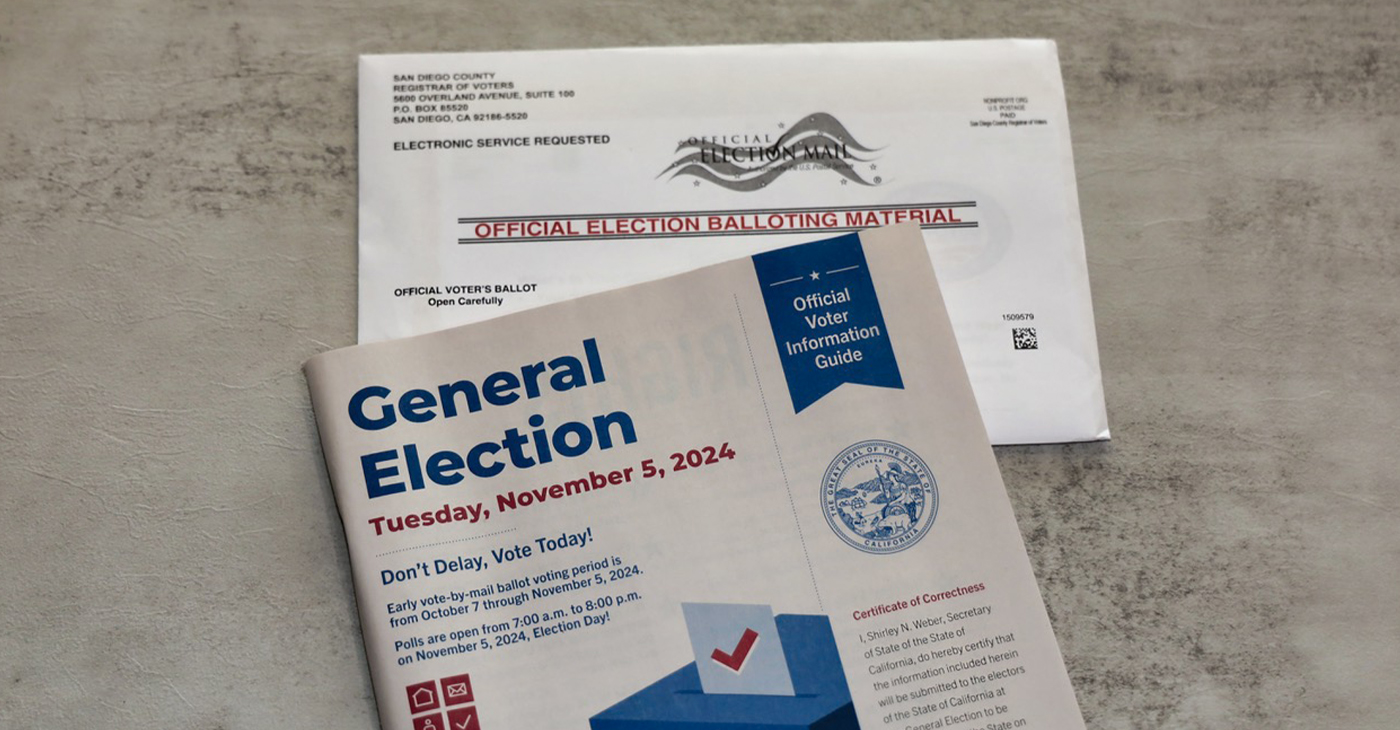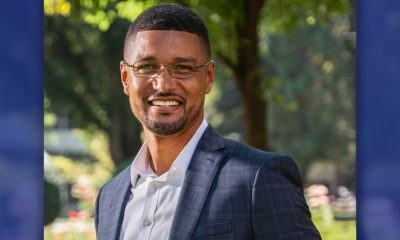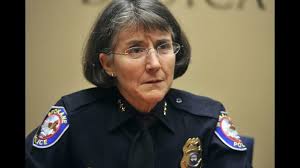California Black Media
California Reports First Case of Mpox in the United States
On Nov. 16, the California Department of Public Health (CDPH), reported the first known case of clade 1 Mpox, previously known as Monkeypox, in the United States. However, the risk to the public remains low, according to the CDPH.

By Bo Tefu, California Black Media
On Nov. 16, the California Department of Public Health (CDPH), reported the first known case of clade 1 Mpox, previously known as Monkeypox, in the United States.
However, the risk to the public remains low, according to the CDPH.
“This case was confirmed in an individual who recently traveled from Africa and is related to the ongoing outbreak of clade I mpox in Central and Eastern Africa,” reads a statement the CDPH released.
According to the DDPH, “The affected individual received health care in San Mateo County based on their travel history and symptoms. The individual is isolating at home and recovering.”
Public health workers are also conducting a contact tracing exercise and reaching out to people who have been in close proximity to the affected person.
“The mpox specimens from the traveler are being sent to the CDC for further laboratory testing,” the CDPH press release continues.
Californians can take a number of steps to prevent Mpox. Here’s more information:
Preventing Mpox Infection
It appears clade I mpox spreads in a similar manner as clade II mpox, through close (skin-skin), intimate and sexual contact. The identification of a potentially more severe mpox version in the United States is a good reminder for individuals who have certain risk factors to take preventive action, including:
- Getting vaccinated if you may be at risk for mpox. For the greatest protection, make sure you get both doses of the vaccine. Find mpox vaccine (JYNNEOS) near you.
- Taking precautions if you were exposed to mpox. Get the mpox vaccine before symptoms develop and consider avoiding intimate contact with others for 21 days. Watch yourself for symptoms and get tested if they develop.
- Preventing spread if you have been told you have mpox. Avoid contact with others until the rash is healed, clean and disinfect shared areas in the home, and notify people who may have been exposed.
- Talking to your sexual partner(s).
- Avoiding skin-to-skin contact with those who have a rash or sores that look like mpox.
- Not sharing items with someone who has mpox.
- Washing your hands often.
- Protecting yourself when caring for someone with mpox by using masks, gowns and gloves.
Visit the CDPH website to learn more about Mpox with Sexual Health Toolkits and a Campaign Materials Page.
Activism
Living His Legacy: The Late Oscar Wright’s “Village” Vows to Inherit Activist’s Commitment to Education
Kingmakers of Oakland (KOO), a nonprofit organization that works to improve educational and life outcomes for Black boys and men, stated that “Oscar Wright is one of the most prolific, consistent, and committed advocates of equity for Black students and Black Families here in Oakland for the past six decades.”

By Antonio Ray Harvey, California Black Media
Activists mourning Oscar Carl Wright’s death, have pledged to continue his lifelong mission of advocating for Black students and families in Northern California.
Wright, 101, who passed away on Nov. 18, was involved in Oakland’s educational affairs until his death.
Now, friends and admirers acknowledge that carrying on his legacy means doubling down on the unfinished work that Wright dedicated his life, time, and resources to, according to Y’Anad Burrell, a family friend and founder of San Francisco-based Glass House Communications (GHC).
“Mr. Wright did a lot of work around equity, specifically, for Black students based on their needs — whether it was tutoring, passing classes, or graduating,” Burrell said.
Wright became a champion for his children’s education, recognizing the disparities between their school experiences and his own upbringing in the Mississippi Delta.
Burrell told California Black Media (CBM) that the crisis of unequal access to resources and a quality education continues to affect the Oakland Unified School District (OUSD).
According to Oakland Reach, in the city of Oakland, only 3 in 10 Black and Brown students are reading at or above grade level. In addition, only 1 in 10 are doing math at or above grade level.
Oakland REACH is a parent-run, parent-led organization. It aims to empowers families from the most underserved communities to demand high-quality schools for their children.
Wright’s work as an activist had impact across the state but he was primarily known in the Bay Area. Alongside the Black United Front for Educational Reform (BUFER), he filed a complaint against OUSD for violating the Civil Rights Act of 1964.
In 2000, the OUSD school board proposed an action plan to address educational inequity, but it was never implemented.
Wright later founded the African American Honor Roll Celebration at Acts Full Gospel Church, an award that recognizes Black students with a grade point average of 3.0 or better. Each year, more than 1,000 students are honored at this ceremony.
Kingmakers of Oakland (KOO), a nonprofit organization that works to improve educational and life outcomes for Black boys and men, stated that “Oscar Wright is one of the most prolific, consistent, and committed advocates of equity for Black students and Black Families here in Oakland for the past six decades.”
Burrell said that one of the main reasons Wright’s work was so essential for families and children in Oakland that is the direct relationship between acquiring a quality education and affording quality housing, maintaining food security, achieving mental wellness, and securing stable employment.
Wright was the child of sharecroppers from Coahoma County, Mississippi. He attended Alcorn State University, a Historically Black College and University (HBCU).
In the late 1950s, Wright and his family relocated to the Bay Area where he worked as a contractor and civil engineer. He later became an active member of the National Association for the Advancement of Colored People (NAACP).
Burrell said the people who will carry on Wright’s work are part of a “village” that includes KOO’s CEO Chris Chatmon. Wright was a mentor to Chatmon.
“It will not be one entity, one person, or one organization that picks up the baton because it was a village effort that worked alongside Mr. Wright for all these years,” Burrell said.
Burell says that legacy will live on.
Antonio Ray Harvey
Secretary of State Reports “Generous Turnout” in November Election
Among the statewide election statistics reported by the Secretary of State’s Office 13,034,378 vote-by-mail ballots were cast, while 3,105,666 ballots were cast at voting locations. Two days before the certification, Weber held a news briefing with media publications. During the conference, held on Zoom, Weber shared details about the process of certifying votes.

By Antonio Ray Harvey, California Black Media
On Dec. 13, California Secretary of State (SOS) Shirley N. Weber officially certified the Nov. 5 General Election results from all 58 counties.
The SOS reported that 16,140,044 (71.43% of registered voters) ballots were cast in this past election. The total number of votes this year was down from the Nov. 3, 2020 vote count which was 17,785,151 or 80.67% –by nearly nine percentage points (according to Weber’s “Statement of Vote: General Election Nov. 5, 2024” report.
Among the statewide election statistics reported by the Secretary of State’s Office 13,034,378 vote-by-mail ballots were cast, while 3,105,666 ballots were cast at voting locations.
Two days before the certification, Weber held a news briefing with media publications. During the conference, held on Zoom, Weber shared details about the process of certifying votes.
Weber said, although there were minor issues and “glitches,” overall the election process in the state ran accordingly.
“There were instances and things that happened, but they did not stop the election. We did not have people lose confidence and not go to the polls to vote,” Weber said.
“There were minor glitches that took place, but we addressed each one of them and nothing seemed to linger in regard to people who wanted to vote and participate in the process which was evident by the generous turnout that we had,” said Weber.
The Public Policy Institute of California reported on Nov. 18 that the decline in votes is notable because there were more registered voters in 2024 than in 2020. PPIC estimated that 1.7 million fewer ballots were cast in 2024, despite having 550,000 more registered voters and 1.8 million more eligible residents than in 2020.
Weber acknowledged the decrease in voter participation compared to the November 2020 election, but she said California’s voters’ registration was higher than the rest of the country.
“Nationally, the 2024 registrations are at 63%. So, we are higher (at 70%) than the national average,” Weber said. “Despite what people might say, we are still in the lead regarding voter turnout, participation, and registration with the largest population in the United States.”
Activism
Advocates Demand Action on Reparations During Gov’s Special Legislative Session
During the special session and regular session, the group called for the re-introduction of reparations legislation that did not get a vote in the last legislative season, a distribution of the final California Reparations Task Force Report to schools and libraries, and the establishment of a defense fund to support implementation and legal defense of the reparations report and associated bills.

By Antonio Ray Harvey, California Black Media
A coalition of reparations advocates are demanding that the California legislature, Attorney General Rob Bonta, and Gov. Gavin Newsom act decisively on reparations bills that have stalled in the Legislature.
They are calling on the state leaders to pass the bills during the special legislative session the Governor called this month to secure up to $25 million for California “to defend against unconstitutional or unlawful federal government actions” expected during the incoming Trump administration.
The advocates want the push for reparations for Californians who are descendants of enslaved Black people in the United States to continue next year during the regular session, which begins when the Legislature convenes on Jan. 6, 2025.
“California has a proud history of leading difficult change in America from environmental policies to safety standards to same-sex marriages and the like,” said Tullus Miller, a Bay Area financial services executive.
Miller was speaking during an engagement held Dec. 2 on the grounds of the State Capitol with the California Native American Monument as the backdrop.
Los Angeles-based attorney Cheryce Cryer explained the purpose of the event. “I’m here today, to bring attention to the needs of Black Americans and the need for our legal and social protections as the special legislative session convenes.”
In addition to Miller and Cryer, other speakers at the event were Dr. Booker Cook, Ethnics Studies professor at the California State University, Sacramento (CSU-Sacramento) and Khansa “Friday” Jones Muhammad, Vice President of the Los Angeles Reparations Advisory Commission.
During the special session and regular session, the group called for the re-introduction of reparations legislation that did not get a vote in the last legislative season, a distribution of the final California Reparations Task Force Report to schools and libraries, and the establishment of a defense fund to support implementation and legal defense of the reparations report and associated bills.
“Today, that Freedmen’s Bureau (bill) needs to be re-established,” Cook said. “The work is done. The history is there, and the proof is there. There should be no more arguments and no more debates.”
Authored by former Sen. Steven Bradford (D-Inglewood), Senate Bill (SB) 1403 and SB 1330 stalled in the Assembly in September, triggering backlash from reparations supporters across the country.
Leadership of the California Legislative Black Caucus (CLBC) said they agreed not to support bringing forth Bradford’s bills due to procedural and funding concerns. However, the CLBC was able to secure $12 million in next year’s budget to continue work on reparations legislation.
“California has been leading the nation in reparations discussions,” Jones-Muhammad said. “The advocates in this space have spent five years doing the impossible and working with the Legislature to bring foundational reparations policies through the Senate and Assembly Appropriations.”
The CLBC starts the 2024-2025 legislative session with new leadership. Sen. Akilah Weber (D-La Mesa) serves as the chairperson, while Assemblymember Isaac Bryan (D-Ladera Heights) is the vice chair.
For starters, Bryan introduced Assembly Bill (AB) 7 on Dec. 3, a new reparations bill that would provide priority admission for descendants of slaves at CSU and the University of California (UC) campuses.
“As the new Vice-Chair of the California Legislative Black Caucus we will continue to fight for what is just,” Bryan stated on the X platform the same day.
-

 California Black Media4 weeks ago
California Black Media4 weeks agoCalifornia to Offer $43.7 Million in Federal Grants to Combat Hate Crimes
-

 Black History4 weeks ago
Black History4 weeks agoEmeline King: A Trailblazer in the Automotive Industry
-

 California Black Media4 weeks ago
California Black Media4 weeks agoGov. Newsom Goes to Washington to Advocate for California Priorities
-

 Activism4 weeks ago
Activism4 weeks agoOakland Post: Week of November 27 – December 3, 2024
-

 California Black Media4 weeks ago
California Black Media4 weeks agoCalifornia Department of Aging Offers Free Resources for Family Caregivers in November
-

 Activism2 weeks ago
Activism2 weeks agoButler, Lee Celebrate Passage of Bill to Honor Congresswoman Shirley Chisholm with Congressional Gold Medal
-

 Activism2 weeks ago
Activism2 weeks agoPost News Group to Host Second Town Hall on Racism, Hate Crimes
-

 Activism2 weeks ago
Activism2 weeks agoDelta Sigma Theta Alumnae Chapters Host World AIDS Day Event






















































